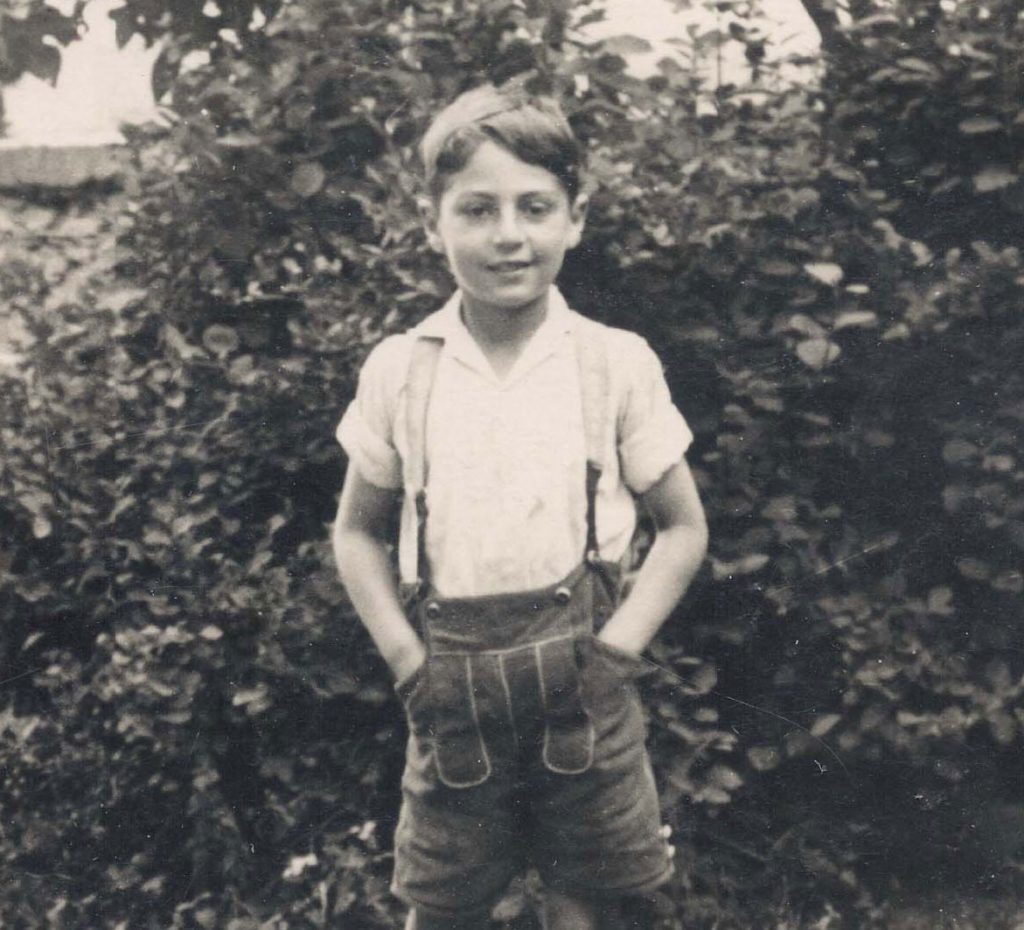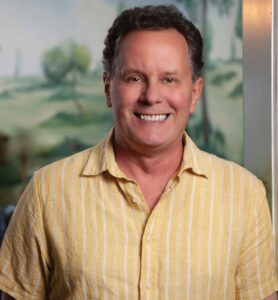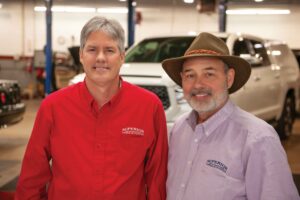For Ann Mollengarden, it is the personal stories, like her father’s, that can act as a mirror to help us better understand the nature of man.
Ann Mollengarden wears two hats, child of a survivor (her father Robert May) and Education Coordinator for the Birmingham Holocaust Education Center (BHEC). These two hats are often hard to separate, but offer a unique perspective on the study of the Holocaust. Most importantly, it provides a great appreciation for the importance of honoring Holocaust survivors–their tragic history–their ability to move on and create new lives for themselves–their undying efforts to share their history with future generations–by making sure that their stories are kept alive.
“As the child of a survivor, I was exposed early on to my father’s family history,” Mollengarden says. “German was spoken during my father’s weekly calls to my grandmother, who we called Oma. Interestingly, I always thought that was her given name and didn’t realize until I was much older that is was actually generic for grandmother in German. When we visited the extended family in New Orleans, German was used when the adults wanted to keep the kids out of the conversation. My dad enjoyed foods that were uniquely German, including a taste for sausages and other cured meats, stinky cheeses, and plum tarts. My grandmother was known for her spaetzle (German noodles) and apple fritters.”
While Mollengarden knew her father’s family was German and that they had lost family during the Holocaust, she did not become aware of the implications until her father took the immediate family back to Germany in the late 60s, to see his home town of Camberg. “We did not go to see anyone because my father’s memory was of a community that turned on his family. We went only to see the town. The only person we looked up was a gentleman who had warned my grandfather about the pending events of Kristallnacht. We drove up to his apartment building, my father went to the door by himself and left us in the car on the street. We saw the curtains pulled shut, and my father stayed inside a disturbingly long time. He then emerged with this man and his wife and introduced us. I realized then that this was a very different type of situation from what I was accustomed.”
On that same trip, they visited cemeteries, looking for family graves. “My genealogy interests were peeked, and I began a fervent effort to learn about relatives; I was only 11 or 12. While I consulted with my grandmother, it was only about names, dates, and places. She never shared her experiences first hand, which was a shame. It never occurred to me at that age to ask about personal stories,” Mollengarden says.
Fast forward to 2005, and Mollengarden’s father took his grandchildren back to Camberg. “I had gotten involved with the Birmingham Holocaust Education Center a few years earlier and had begun to learn more about the events of the Holocaust and started making connections with my own family story,” Mollengarden says.
By 2010, and at Mollengarden’s urging, her father began to tell his story publicly. “While he knew about the work of the BHEC, and was proud of the work we were doing, he never considered himself a survivor. After all, he had never been in a ghetto or a camp, nor suffered like “Holocaust survivors.” I explained to him that he was indeed a survivor…anyone who had come under the Nazi reign of terror is considered a survivor. And that his story was as important, if not more important, because his story spoke to the early warning signs, a time when change would have been possible. How people’s behavior changed, and why. How people rejected accepted standards of morality for the “greater good.” I pointed out how he had suffered the loss of his extended family, the separation from his family (even if temporarily). The loss of the three family members who made sure he survived. These were things he had not emotionally explored and reckoned with,” she says.
“It is through the personal stories, that we are able to make connections with this overwhelming history. I see it with students, that all the facts and figures are important for a larger understanding, but the personal stories remain a part of their inner being. With fewer and fewer Holocaust survivors alive to be able to tell their story, it is our responsibility to keep those stories alive.
“When listening to a Holocaust story, we naturally try to put ourselves in this context, which is virtually impossible. How does one put oneself in a context of an event that even the survivors of that event are not adequately able to describe? We then ponder, “What would I have done?”
Of course, it is natural to take the moral high ground and assume we would have spoken up, stepped in, even pulled a gun. In truth, nothing is that simple. We have to have a full appreciation of the situation at hand: the history, the relationships, the dreams, the emotions, the fear. What were the prevailing sentiments and government powers that effected action or inaction?
“It is the personal stories, like my father’s, that can act as a mirror to help us understand how people behaved and better understand the nature of man. For that is what we need to understand. What is man capable of, what makes some people react one way and not another, and how do we deal with that,” Mollengarden says.
“One must appreciate that although not all of the victims of the Holocaust were Jews, all Jews were victims. The Jews were targeted for complete elimination. So this is a very personal story for the Jews. For others outside of the Jewish faith, the Holocaust should serve as a human story. A story of man’s inhumanity to man, of what a highly educated society is capable of. While the victims during the Holocaust were primarily Jews, the next time the victims may be a different targeted group. We must remain keenly aware and vigilant of the warning signs. After all, the Weimar Republic (the government of Germany after World War II) was democratic, and Germany was one of the most cultured nations at the time.
“We all must take the time to learn the history. To that end, the BHEC has been offering a Community Education program for the last two years. We also present community education programs including an annual Film Series. The Holocaust was an event like not other in history, but there are events going on in our world today which can be examined through the lens of the Holocaust.”
L’CHAIM 2019
Honoring Holocaust Survivors from Generation to Generation
The L’Chaim (“to life”) event celebrates the culmination of the Birmingham Holocaust Education Center’s (BHEC) annual fundraising campaign. This year, the BHEC is honoring Alabama’s Holocaust survivors and their families. The personal stories of these survivors are the very reason for the BHEC’s existence and the core of the organization’s work statewide. The BHEC uses these stories to teach new generations about the consequences of hate and indifference.
The program will celebrate the rich Jewish culture shared by all of our Holocaust survivors, and will also shine a light on survivors of hatred in our day: targeted groups such as African-Americans, Muslims, LGBTQ, the handicapped, and (still) the Jews–because the lessons of the Holocaust are painfully relevant and timely in today’s world.
DETAILS
Sunday, August 18, 2019
2:30 – 4:00 Jemison Concert Hall Alys Stephens Center
Presented by the Birmingham Holocaust Education Center (BHEC) in collaboration with Red Mountain Theatre Company (RMTC).
Performers: The Magic Shtetl Klezmer Band, under the direction of Alan Goldspiel. Vocalists Cantor Jessica Roskin, Caleb Clark,
Tracy Winborn, Student performers from RMTC Conservatory
Dessert reception following program.
Tickets: Adults: $50.00 Students: $25.00




